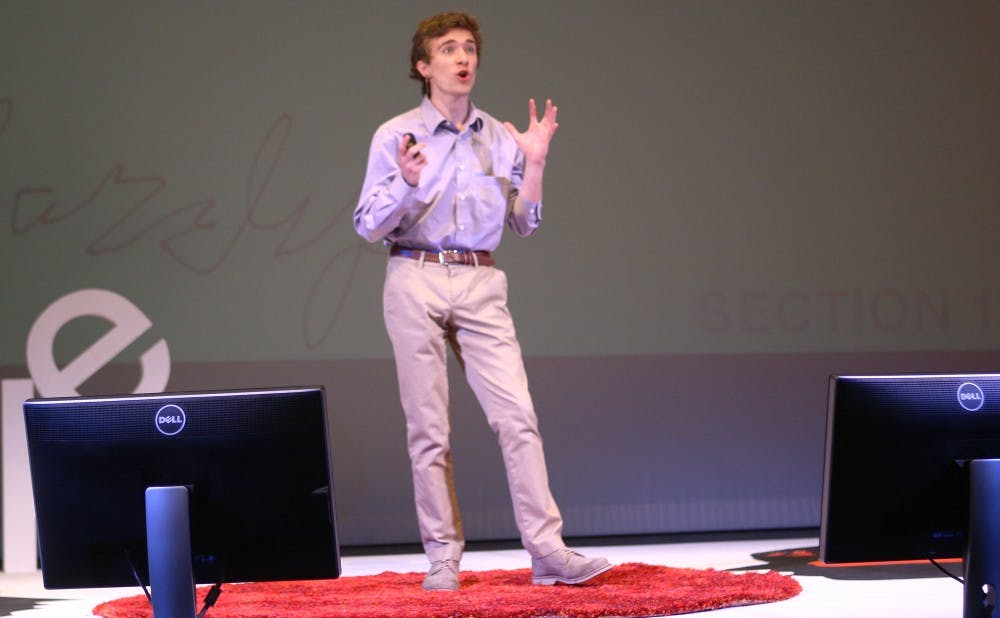The 2014 TEDxDuke audience was asked to challenge themselves at the fourth annual event in Reynolds Theater Saturday.
TEDx is affiliated with TED—Technology, Entertainment, Design—a program that aims to share ideas in communities around the world, usually through short talks. More than 600 people attended the event—tripling last year's attendance—to hear 12 speakers, ranging from students and faculty members to local Raleigh-Durham residents, address this year’s theme, “Challenge Accepted."
“We didn’t think it would sell out the 600 tickets here but we did,” said junior Gavin Ovsak, TEDxDuke committee co-director. “It’s really pretty awesome.”
Keeping with the theme, some speakers discussed challenges they were working to solve. Professor of biomedical engineering Nimmi Ramanujam explained that with the help of her students, she thought of cheap and innovative ways to diagnose cervical cancer in women in impoverished countries.
Raleigh-Durham resident and co-founder of Mapquest Chris Heivly discussed how aspiring entrepreneurs should be encouraged to take small steps in bringing their ideas to fruition.
The two biggest challenges facing the next generation are health care and education, said Aaron Chatterji, associate professor at the Fuqua School of Business, in another speech. Chatterji, a former White House economist, said these challenges must be addressed through a combination of personal interaction and technology.
“We can’t be thinking about substituting teachers and doctors for technology when it comes to education and health care,” he said. “We need to think about complementing people and good technology.”
Chatterji said you can never replace the inspiration of a teacher or the bedside manner of a doctor with technology, but stressed the importance of using and evaluating mobile applications in the healthcare and education fields.
Like Chatterji, this year’s TEDxDuke committee sees the value in mobile apps, said senior Neby Teklu, co-director of the TEDxDuke committee. As an experiment, the event used an app called EventJoy in order to facilitate interaction between the speakers and audience. The app allowed for the audience to respond to poll questions from speakers, view mentions of the event via social media and see the profiles of other audience members.
“TED events are really supposed to be interactive and it’s not meant to be a place where you sit, listen and leave,” Teklu said. “You’re meant to interact with the audience members.”
The comfortable environment TEDxDuke provided is what differentiated the conference from watching the event on a computer screen, Teklu said.
For example, during the event’s intermissions, beach balls were tossed around with questions written on them to facilitate discussion among the audience.
“We wanted everyone to be able to relate to it,” Ovsak said. “We wanted it to be something that could unite everyone as a whole.”
Ovsak said he hopes this year’s theme inspires interaction that lasts well beyond the conference.
“People often come up to the speakers afterwards and get involved,” Ovsak said. “We’re hoping to cultivate something like that.”
Get The Chronicle straight to your inbox
Signup for our weekly newsletter. Cancel at any time.

